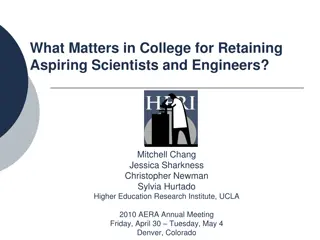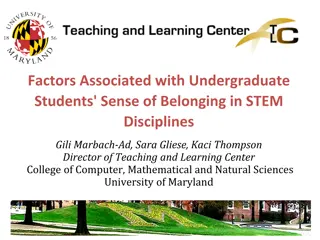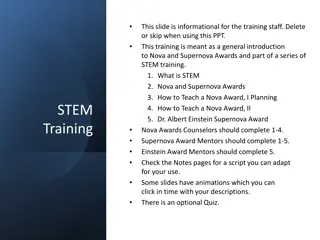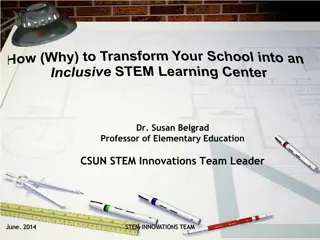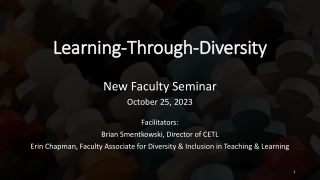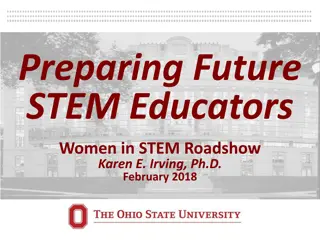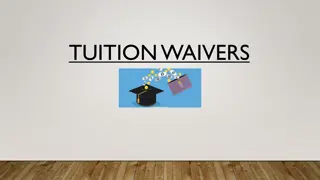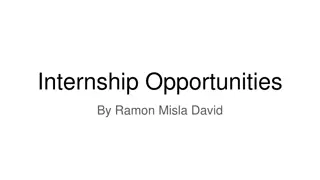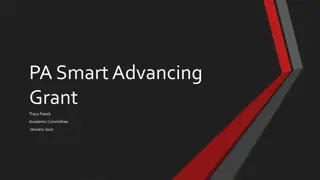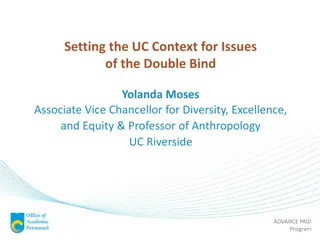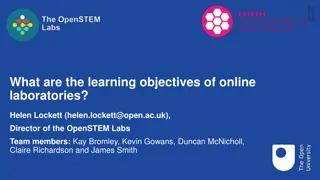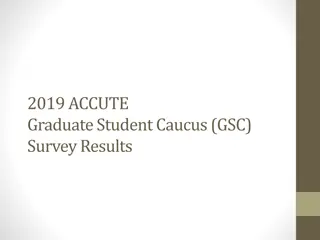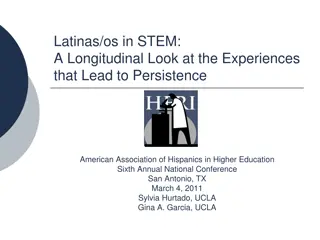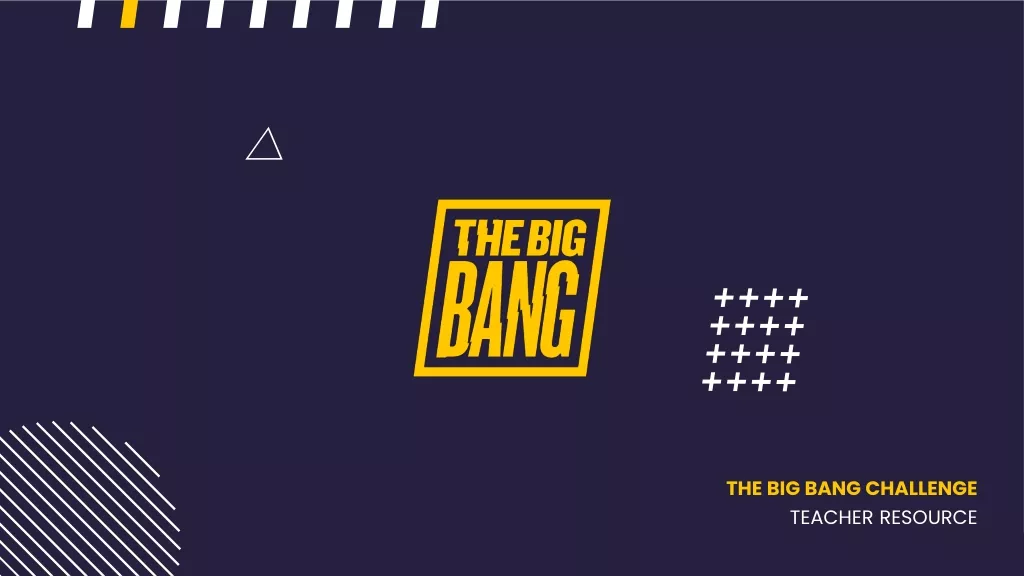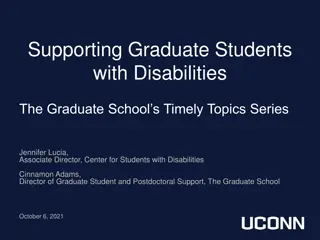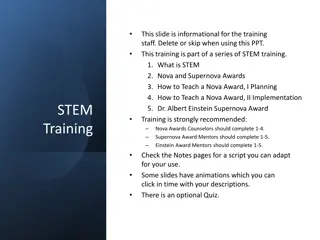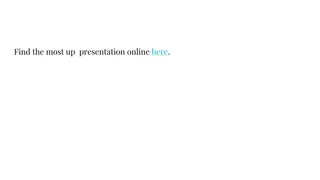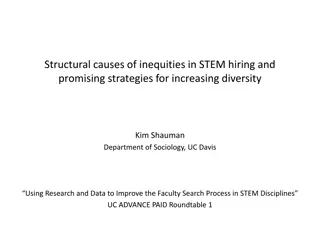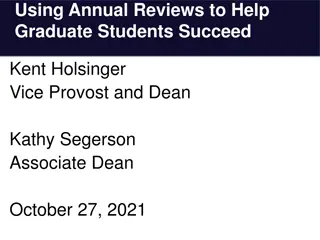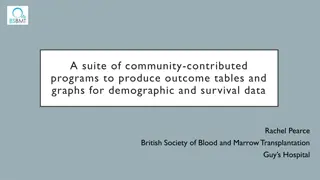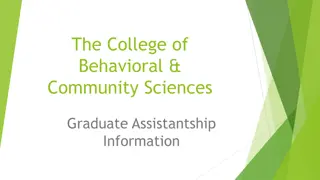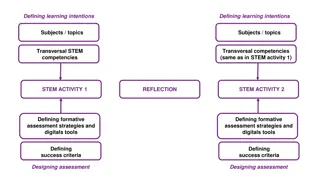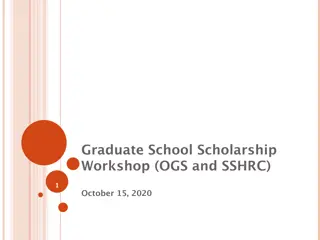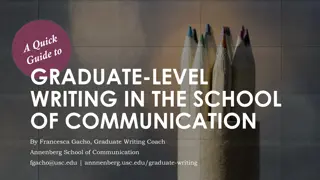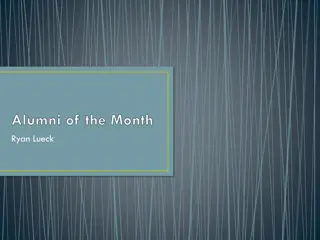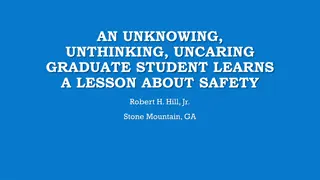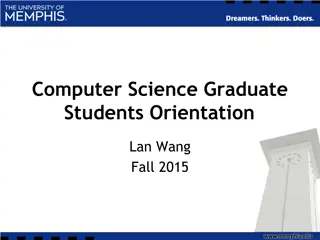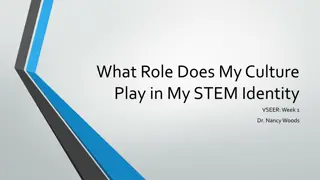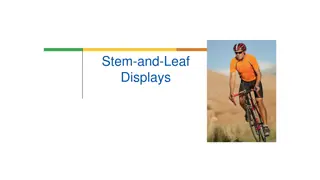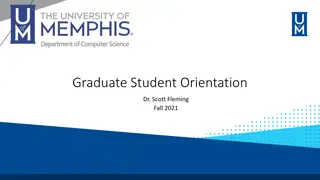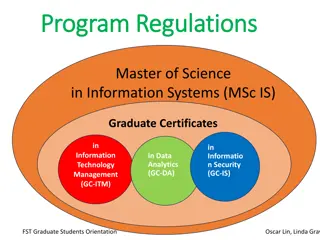Critical Analysis of URM Graduate Students' Experiences in STEM Programs
URM graduate students in STEM programs face challenges that hinder their progression due to power differentials and micro-inequalities. Research examines the responses of URM students to these obstacles using data from a STEM retention project at Midwestern University. Analysis involves thematic coding and intercoder reliability to identify key findings. Limitations include student hesitancy, reliance on a secondary dataset, and the challenge of generalizing findings to other student populations.
Download Presentation

Please find below an Image/Link to download the presentation.
The content on the website is provided AS IS for your information and personal use only. It may not be sold, licensed, or shared on other websites without obtaining consent from the author. Download presentation by click this link. If you encounter any issues during the download, it is possible that the publisher has removed the file from their server.
E N D
Presentation Transcript
+ A Critical Approach to Understanding URM Graduate Students Schooling Experiences in STEM Tanya Figueroa and Sylvia Hurtado UCLA Association for the Study of Higher Education November 2013 St. Louis, MO
+Problem U.S. born Black, Latina/o, and American Indian students continue to be severely underrepresented within STEM graduate programs. The issue is exacerbated by low 10-year doctoral completions rates. As low as 40% in some STEM disciplines.
+Research Questions What challenges do URM students face in the formal academic environment that make progression through their STEM graduate program difficult? Further, how do students respond to these challenges?
+Theoretical Perspectives Race is Embedded within American institutions Power differentials exist across racial lines Dominant groups Have the power to other those they perceive to be different from them Micro-inequalities Seemingly trivial practices and behaviors that communicate devaluation or disrespect, which collectively have large consequences on the outcomes of people.
+Methodology Data come from a larger STEM retention project conducted by HERI, one campus selected Participants recruited by email from structured STEM programs for URM students Biographic questionnaire A semi-structured focus group interview technique
+Data Source Midwestern University (MU) 42,000 students/15,500 Grad 23 students across 9 focus groups Black 13 Latino 5 Multi-racial 5 Males 14 Age range 25-36 Engineering 11 Biology/Chemistry 6 Other STEM 6
+Analysis Pertinent data were group coded into salient themes Constant comparative analysis Intercoder reliability, iterative process, until agreement was over 85%
+ Limitations 1. Student hesitancy to share experiences 2. Secondary dataset based on a larger project on graduate experiences 3. Generalizing to other students
+Results: Three Overarching Challenges Students Encountered 1. Negative consequences stemming from underrepresentation in one s program 2. Exclusion and conflict, and the ambiguous nature of these experiences 3. Less ambiguous experiences of discrimination
+The Phenomena of Underrepresentation Participants felt otherized and hyper visible within academic spaces. Participants perceived that others: Were surprised and threatened by their presence Questioned their ability and commitment to do science Questioned the merits by which they were admitted
+Austin, mechanical engineering, Black Here in [Midwestern University] there s not a lot of African American or Hispanics walking around. So whenever a minority enters the engineering department I feel as if there s already some kind of, I don t want to say stigma, but there s always... he or she has to prove himself kind of deal. You know, I wonder how he or she got here? kind of thing. Are they filling some quota or whatever the case may be? It s very subtle. I don t think the university flaunts it. But I definitely know it s there.
+Exclusion Negative feelings from being the only one were exacerbated by exclusion from peers Made learning, completing class work, and passing qualifying exams more difficult.
+Dominique, electrical engineering, black If I went to a random person and asked the person this question, I d have understood, but I m like, this is someone who s in my lab group we re trying to solve the same project together. We re supposed to have some kind of bond. And then he said that [he wouldn t discuss the homework with me] and I was like, Hmm, maybe I have to rethink working with this guy. If he s as individualistic as he is then [he s] probably not the kind of person I want on my team.
+Less Ambiguous Experiences of Discrimination I was trying to talk to [a professor] about his research and his response was, Well, I didn t think your kind would be interested in this kind of research. And I stopped and asked myself do I really want to go into this or not? So, of course, me being the way I am, I just decided I d challenge him. What do you mean my kind? And I think a lot of it comes from ignorance and I don t even think he thought about what he said. - Brandon, applied physics, Black
+Discussion Considerations of race are hardly absent from students experiences in STEM graduate education Underrepresentation, inequities, and racism disadvantaged participants Students responded in multiple ways
+Implications for Practice Intentional recruitment of URM students Nurturing and collaborative educational environment Learn innovations from other places Future research Longitudinal Stories of those who drop out Persistence in STEM graduate programs is within reach!



